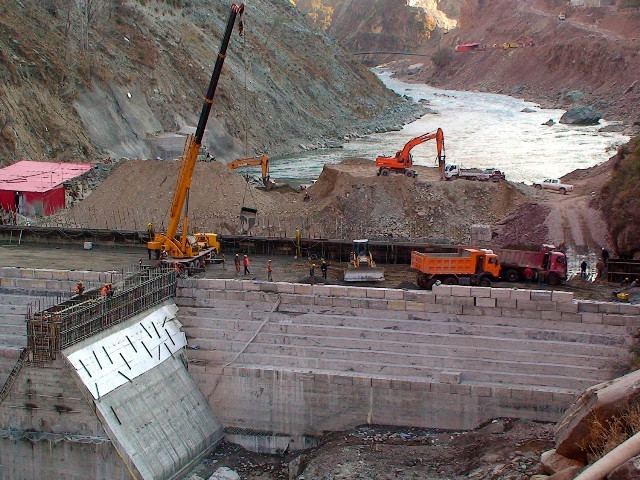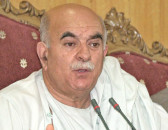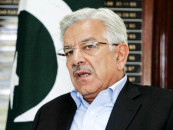Post-devolution: Pak-EPA working with provinces for better environmental protection
Agency’s head says provinces lack technical capacity to deal with scope of challenges.

Khan said the Neelum-Jehlum hydropower project has been selected as the first pilot case. PHOTO: FILE
The Pakistan Environment Protection Agency (Pak-EPA) is planning to introduce a new model for integrating sustainable development in government policies, while trying to revamp the existing environmental impact assessment (EIA) guidelines.
This was stated by Pak-EPA Direct-General (DG) Asif Shuja Khan, while talking to The Express Tribune. Khan was responding to an audit report observation about the effectiveness of the Initial Environment Examination (IEE) and EIA system.
The audit report, which was prepared three years ago by the Auditor General of Pakistan but was released recently, stated that the system was ineffective due to an anomaly in the law that governs it.
A lot has changed since the audit was conducted, the Ministry of Environment was abolished, environment was made a provincial subject under the 18th Amendment and Pak-EPA’s jurisdiction was restricted to the federal capital. But the clauses pertaining to IEE and EIA in the environment protection laws enforced in Islamabad and the provinces have remained the same.

According to environment laws, construction or operation on a project cannot begin unless the developers have filed an IEE, or in extreme cases an EIA report with the government’s environmental watchdogs. The audit report was of the view that developers might not have the technical know-how to “judge if the project is likely to have an adverse environmental impact.”
The report recommended the system be strengthened to help Pak-EPA identify environment-friendly projects on its own and conduct post-IEE monitoring.
Khan said the current situation might be worse than when the audit was performed. Back then, Pak-EPA was responsible for all over the country, he said, but now the provincial environment protection departments, some of which severely lack technical capacity, are in charge.
Perhaps as a result, Pak-EPA is working with provincial departments to revise the EIA guidelines. Khan said the schedules are being revisited to make the scrutiny process more strict and thorough for small-scale projects.

In addition, the agency is trying to introduce a strategic environmental assessment (SEA) model for larger government projects, the DG said.
The SEA allows for integration of principles of sustainable development into a country’s and programmes, according to the International Union for Conservation of Nature (IUCN) Pakistan, an NGO that works on environmental issues.
Since 2009, IUCN Pakistan has been working on the National Impact Assessment Programme (NIAP) in collaboration with the government of Netherlands and Pakistani organisations, including Pak-EPA. The programme aims to strengthen the EIA regime in Pakistan and to introduce SEA in development planning. A countrywide EIA “mapping exercise” conducted by the IUCN showed that the EIA process was suffering due to lack of transparency, public participation, funds, inadequate technical capacity and irresponsibility on the part of citizens.
A NIAP study also revealed that the existing institutional setup is conducive to SEA but the challenge is to “convince decision-makers about the advantages of subjecting draft policies and plans to stakeholders’ consultations and environmental evaluations.” The study also said test cases should be identified where SEA strategy could be piloted.
Khan said the Neelum-Jehlum hydropower project has been selected as the first pilot case.
Published in The Express Tribune, October 11th, 2013.



















COMMENTS
Comments are moderated and generally will be posted if they are on-topic and not abusive.
For more information, please see our Comments FAQ